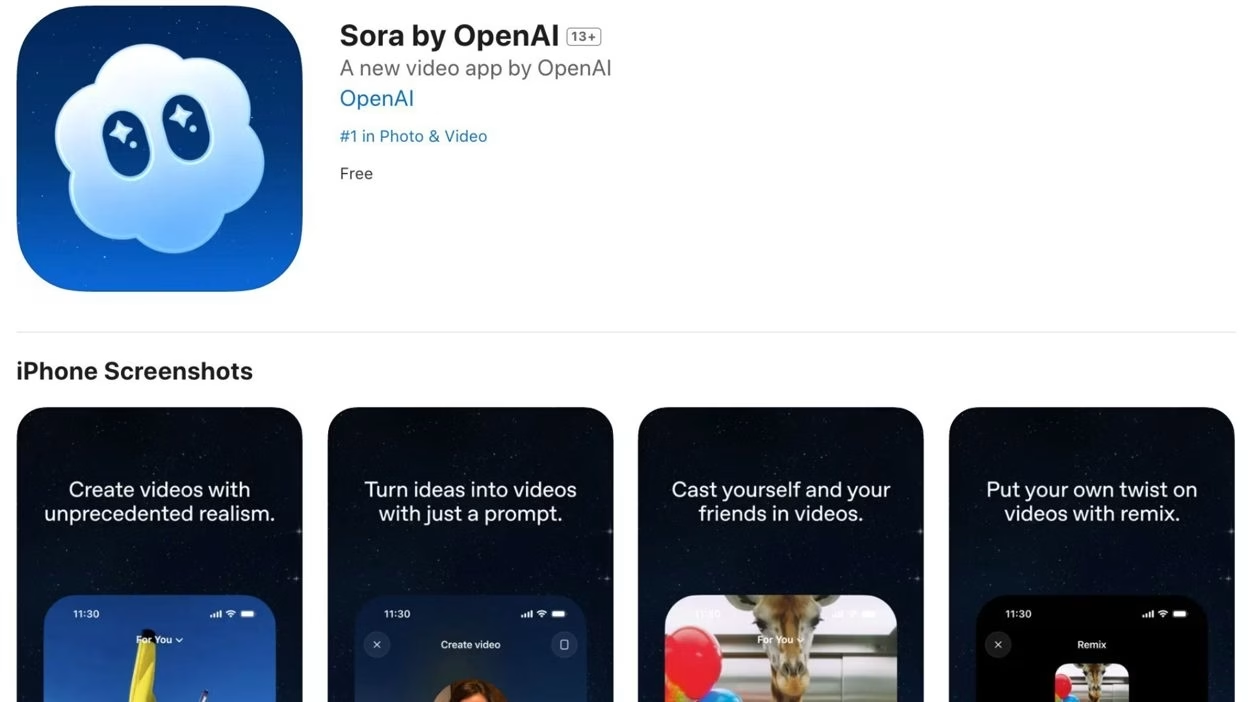Sora 2 Clones Flood App Stores Globally as Official Access Remains Limited
The surge in fake applications highlights a recurring pattern in the tech world: as soon as a revolutionary product captures public imagination, a shadow economy of imitators springs up, eager to profit from the buzz. For users outside the initial rollout regions, the search for Sora 2 is no longer a straightforward quest for cutting-edge AI but a minefield of potential scams.
The Allure of Sora 2: A Glimpse into the Future of Video Creation
OpenAI's Sora 2 has generated significant excitement for its ability to transform text prompts into remarkably realistic and coherent video sequences. Building on the foundation of its predecessor, Sora 2 boasts enhanced capabilities in generating videos with improved physics, detailed environments, and even synchronized audio. This leap forward promises to democratize high-quality video creation, making it accessible for content creators, marketers, and everyday users alike.
The official Sora app, accessible via a U.S. App Store link, is currently operating on an invite-only basis. This exclusivity, coupled with the tool's impressive demonstrations, has naturally fueled a global demand. However, this very demand is precisely what the clone developers are exploiting. They are leveraging the public's eagerness to experience Sora 2's capabilities firsthand, offering seemingly legitimate access that, in reality, leads to disappointment or worse.
A Global Flood of Fakes: The App Store Under Siege
Reports indicate that App Store searches for "Sora" in regions beyond North America are now overwhelmingly populated by these fraudulent applications. These clones often mimic the official Sora app's icon – a distinctive blue orb – and employ similar branding to mislead unsuspecting users. They promise immediate access to the advanced AI video generator, often without the need for an invite, preying on the frustration of those excluded from the initial launch.
The implications for users are varied and concerning. Many of these fake apps are outright scams, charging anywhere from $4.99 to $19.99 for what amounts to a subpar, watermarked video or, in some cases, absolutely nothing at all. Beyond financial loss, there's a significant risk of data harvesting. These apps may request extensive permissions or prompt users to create fake accounts, potentially compromising personal information and leading to identity theft. Apple has reportedly begun removing some of these fraudulent apps, but the sheer volume and the speed at which new ones appear make it a constant battle.
Navigating the Digital Minefield: Warnings and Advice
OpenAI itself has issued a stern warning on its support pages, urging users to download only from official links and to be wary of impostor applications that could expose them to malware or data theft. The company has acknowledged that a global expansion is planned, but the timeline remains uncertain for many regions, particularly those with stricter regulatory environments like the European Union, where AI regulations may be causing delays.
This situation underscores a critical need for user vigilance in the rapidly evolving AI landscape. As new and powerful AI tools emerge, the digital marketplace will inevitably attract those looking to exploit the hype. Users are strongly advised to:
- Verify Developer Credentials: Always check the developer's name and reputation before downloading any app, especially one promising groundbreaking technology.
- Read Reviews Critically: While reviews can be helpful, be aware that fake reviews can also be manufactured. Look for consistent patterns of complaints about functionality or unexpected charges.
- Be Skeptical of "Too Good to Be True" Offers: If an app promises immediate access to a highly exclusive tool for a low price or for free, it's a major red flag.
- Check App Permissions: Pay close attention to the permissions an app requests. If a video generator needs access to your contacts or microphone without a clear justification, proceed with extreme caution.
The proliferation of Sora 2 clones is more than just an annoyance; it's a stark reminder of the "wild west" nature of the current AI boom. While the technology itself promises to be transformative, its rapid adoption is also exposing users to new forms of digital deception. As OpenAI works to expand Sora 2's reach, the fight against these malicious imitators will undoubtedly continue.
